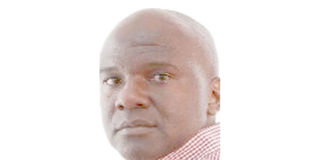Praise singing as an asset in tough economic times

Author, Nicholas Sengoba. PHOTO/FILE
What you need to know:
- Mr Nicholas Sengoba says: Not many will do business with or work with you if you are deemed to be ‘anti-govt.’
Most people you meet in Kampala complain of tough times in an economy that has been growing consistently for the last 30 years.
This intriguing trend for many is caused by corruption by those who run the NRM government. This is true to a remarkable extent if the police crime report for the year 2020 is to go by. That almost Shs11 trillion was lost in financial crimes, many within the government. That is almost one third of the budget wiped out.
But it was not always like this. When NRM landed in Kampala in 1986, they found the economy had ground to a halt after years of war and instability.
When the guns fell silent and focus was placed on building the economy, it created a plethora of opportunities everywhere.
The economy started growing from negative. So whatever one did was bound to succeed, in some cases exponentially. Peace and security meant increased socialisation, entertainment and consumption of luxury goods which found a very hungry, ready market. Trade expanded and many flocked in that sector, went to Dubai, London etc, to import clothes, household goods you name it.
Japan prospered many who brought in affordable reconditioned cars, motorcycles and spare parts.
The international community (NGOs also known as the expatriate community,) laden with money, flocked in, in droves leading to a boom in construction of houses and office space. These were willing to part with top dollars which encouraged more people to entry into construction and real estate. As the government embarked on the Bretton Woods Institution’s structural and sectoral adjustment programmes, a market was opened for education as a business and indeed many private schools came into being. Hardware business grew by leaps and bounds.
Kampala then moved from being the city built on seven hills to one on many.
There were well paying jobs in almost every sector. For instance when the airwaves were liberalised in 1993, they came with jobs for presenters, advertising agents, promoters, etc. The same happened with the foreign exchange market that gave rise to many money exchange shops. There was room for even very small players who set up video and music libraries, video halls which were mini cinemas where one would enjoy movies translated into local languages.
A stable Uganda was opened to the world and people who travelled discovered that it was profitable to sell one’s labour abroad.
Many young people then went to do blue collar work and remitted home money serious enough to look after their relatives, educate their siblings and build houses. Others went to places like South Africa, which was recovering from apartheid, to work as highly paid doctors, nurses, teachers etc. Rwanda in 1994 was more opportunity.
There was room for everyone who wanted to work both at home and abroad from cleaning, security, food and drink, health etc. This period of recovery which between 1986 and 1996 kept many busy and excited about improving their lives.
Politics hardly agitated them. It was common to hear people saying this may not be a democratic government but it was okay because it enabled them to prosper. All this prosperity came with a price. Too much investment in most of the sectors that boomed post 1986, led to saturation. Almost everyone became a landlord which brought down rent payable. Overnight people became businessmen importing vehicles, electronics, clothes, etc. leading to lower returns due to competition.
Schools started advertising, which was something unheard of in the past using the availability of DSTV and computers as a point of attraction of students.
Then China happened as an industrial power which flooded the markets with cheap goods. Then the internet and communication revolution happened and kicked out many middlemen as you could now purchase anything online. You can now download any movie and music by the click of a button and watch or listen to it on your hand held smart phone or computer. So the video hall and rental shop suffered.
What we perceived as the private sector was really narrow and limited to trade, mobile telephony, transport (taxis, buses, Boda Bodas) and real estate. The dynamics, which eventually put pressure on earnings in these sectors pushed many on the wall. The opportunities are running out. Worse still many cannot return to agriculture. Having tasted the liquorice of the lights of the city, lost their land to the pressure of corruption money and the set back the agricultural sector suffered when cooperatives died, it is no longer a viable option. Now most people have their sights on ministries, departments and agencies (MDAs) as the most formidable clients with whom one may do business. During the Covid-19 lockdown they were almost the only ones that did not lay off workers or resort to pay cuts!
Now being the go to areas for well-paying contracts has also come with a price. You must not be seen to be politically incorrect in order to qualify for this precious hot cake. The media for instance can’t be seen to annoy MDGs or the government because they need their adverts. Same applies to individuals. Not many will be willing to do business with you or a company you work with if you are deemed to be ‘anti-government.’ You may cause them ‘trouble.’ That is why praise singing and sycophancy has become very prominent especially on social media.
It is one of the assets many believe will get them noticed by the powers that be and their acolytes just in case they come calling for business.
Mr Sengoba is a commentator on political and social issues
Twitter: @nsengoba




